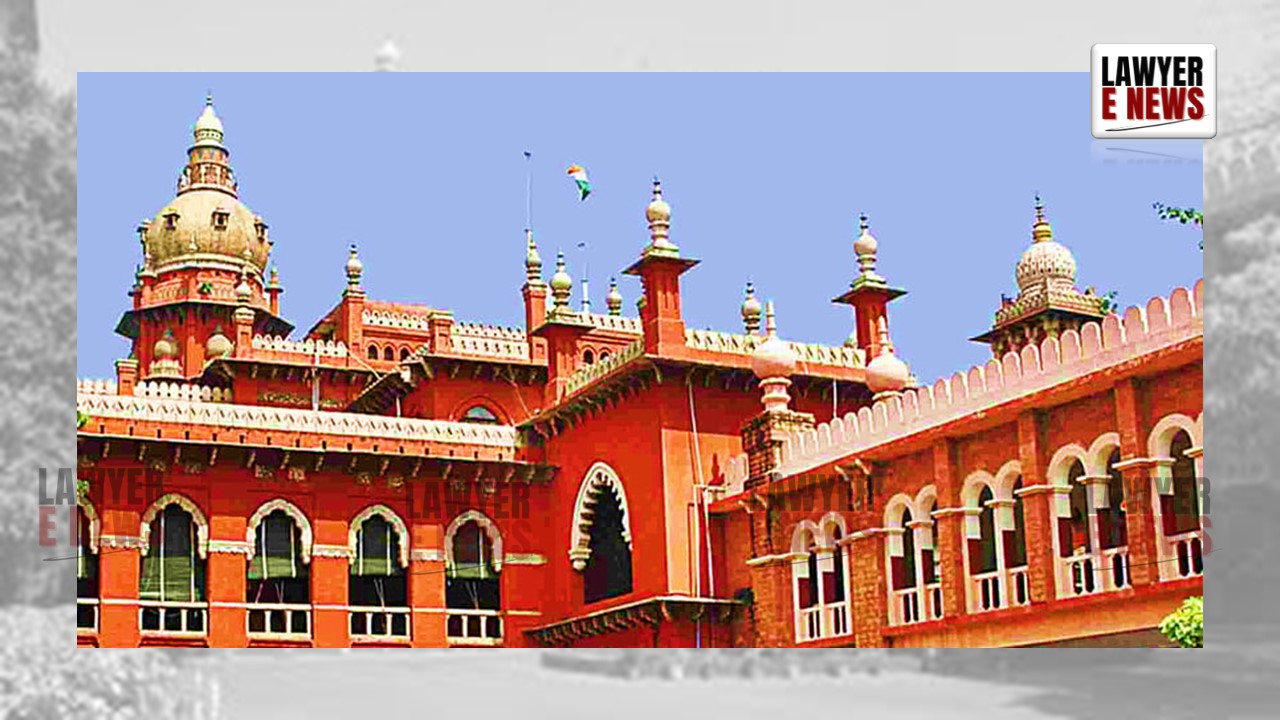-
by Admin
15 February 2026 2:36 AM



“Ancestral property remains ancestral unless proven otherwise. Daughters, as coparceners post-2005 amendment, have equal rights,” Madras High Court reaffirmed the rights of daughters to ancestral property under the amended Section 6 of the Hindu Succession Act, 1956. Justice N. Seshasayee, while allowing the appeal and restored the trial court’s decree granting the daughters (plaintiffs) a 1/5 share each in their father’s ancestral property. The judgment overturned the first appellate court’s ruling, which erroneously classified the property as self-acquired.
The Court emphasized that the property, though partitioned in 1986, retained its ancestral character, and the daughters’ rights were preserved under the 2005 amendment to the Hindu Succession Act, which granted coparcenary status to daughters. The ruling aligns with the Supreme Court’s judgment in Vineeta Sharma v. Rakesh Sharma (2020), clarifying the implications of the notional partition and the coparcenary system.
“Recitals in a registered deed bind parties unless proven false,” holds the Court.
The pivotal document in the case was a 1986 partition deed (Ex.A1), which expressly categorized the suit property as ancestral. Justice Seshasayee observed:
“The recital in Ext.A1 reflects the parties’ intention to treat the property as ancestral. Such statements, unless proved to be false or fraudulent, estop the parties from claiming otherwise. The first defendant, having voluntarily subscribed to Ext.A1, cannot now deny its ancestral character.”
The Court held that the first appellate court committed a manifest error by misinterpreting the partition deed and disregarding binding admissions. It noted that the first defendant (father) failed to lead evidence to rebut the recital’s authenticity.
The suit arose when Vasumathi and Malathi (daughters of the first defendant) filed a partition suit in 2008, claiming a 1/5 share in their father’s ancestral property. The property, originally held by their grandfather, was partitioned between their father (first defendant) and his brother in 1986. The plaintiffs argued that the property retained its ancestral character, entitling them to coparcenary rights post-2005.
The trial court decreed in favor of the plaintiffs, granting them a 1/5 share each. However, on appeal, the first appellate court reversed the ruling, holding that the property was self-acquired and denying the daughters any rights. Aggrieved, the plaintiffs moved the High Court.
The High Court decisively held that the property in question was ancestral. It relied on the recital in Ex.A1, which described the property as ancestral and noted that the first defendant had blended his inherited share with the ancestral property. The Court clarified:
“A property declared ancestral in a registered partition deed binds all parties, unless fraud or mistake is proved. The defendants failed to discharge the burden of proof to the contrary.”
The Court rejected the first appellate court’s reasoning that the property became self-acquired upon partition in 1986, citing the Supreme Court’s Vineeta Sharma precedent, which clarified that ancestral property does not lose its character unless partitioned among coparceners.
The High Court ruled that the daughters were entitled to coparcenary rights under the Hindu Succession (Amendment) Act, 2005, which granted daughters equal rights in ancestral property. Justice Seshasayee stated:
“The 2005 amendment to Section 6 of the Hindu Succession Act conferred coparcenary status on daughters, making them entitled to seek partition of ancestral property irrespective of the date of their father’s death or the nature of the property.”
The Court dismissed the defendants’ argument that the daughters were not entitled to a share, emphasizing that the amended Section 6 applied retrospectively to all pending claims.
The defendants argued that the death of Rangasamy Chettiar (the plaintiffs’ grandfather) in 1962 triggered a notional partition under Section 6 of the Hindu Succession Act, thereby converting the property into self-acquired property. However, the Court clarified that the notional partition only served to carve out the deceased coparcener’s share and did not destroy the coparcenary or the ancestral nature of the remaining property.
“A notional partition under Section 6 is only a statutory fiction for determining the share of a deceased coparcener. It does not sever the coparcenary or transform ancestral property into self-acquired property in the hands of the surviving coparceners.”
The defendants relied on two settlement deeds executed by the first defendant in 2008, transferring the property to his sons. The High Court invalidated these deeds, observing that the daughters’ coparcenary rights had already vested in 2005.
“Once the daughters became coparceners under the 2005 amendment, any subsequent alienation of the property, including the 2008 settlement deeds, is null and void to the extent it defeats their rights.”
The Court applied the doctrine of estoppel to hold the first defendant accountable for the declarations in Ex.A1. It noted that recitals in registered documents bind parties and preclude them from denying admitted facts unless fraud or error is proven. Justice Seshasayee remarked:
“Ext.A1 is a registered partition deed, and its recitals are conclusive unless rebutted. The first defendant, having subscribed to it, is estopped from claiming the property was self-acquired.”
Allowing the appeal, the High Court set aside the first appellate court’s judgment and restored the trial court’s decree, granting the plaintiffs a 1/5 share each in the property. The Court concluded:
“The suit property is ancestral, and the plaintiffs, as coparceners, are entitled to partition. The first appellate court misconstrued the law and the evidence, leading to a grave miscarriage of justice.”
The Court also clarified that the settlement deeds executed by the first defendant were invalid and directed that the partition decree be executed without further delay.
Date of Decision: November 8, 2024
